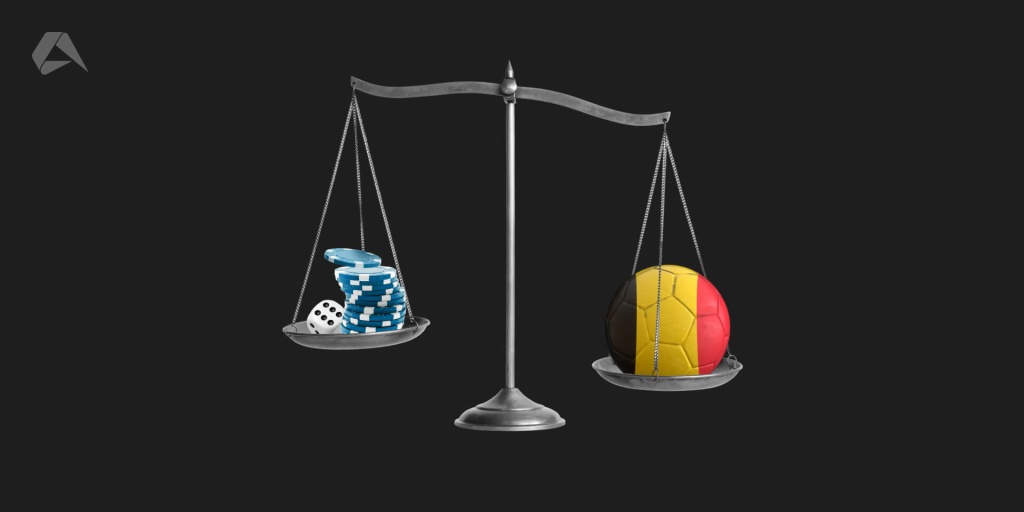New rules introduced in Belgium in 2023 have meant a much more stringent set of regulations for iGaming operators to be aware of.
Here we take a look at the history and culture of betting in Belgium and what the updated gambling laws mean for operators.
History of gambling in Belgium
The origins of gambling in Belgium, like most northern European countries, can be traced back hundreds of years with evidence of card games and lotteries in the 1300s and a national lottery from the 15th century.
The building of the Grand Casino, which was designed by famous Belgian architect Leon Stynen, in the seaside town of Knokke was another significant landmark. Unfortunately the building suffered significant damage during the Second World War but it was restored and is the largest casino in Belgium, having also become famous for art exhibitions and musical performances.
Its growing popularity saw the casino start operating all year round in the 1960s, having only previously opened during the summer due to its seaside location, while further renovations took place in the 1980s.
Gambling in Belgium was not legalised until 1999 when the Belgian Gaming Commission was set up. For the first time in the country’s history, it meant all gambling activity would be licensed, regulated and monitored by the state, with the Commission made up representatives from the justice, finance, economic affairs, internal affairs and public health departments.
The Gambling Law of May 7, 1999, defined gambling as a form of “game of chance”, meaning “any game by which a stake of any kind is committed, the consequences of which is either loss of the stake by at least one of the players or a gain of any kind in favour of at least one of the players, or organisers of the game and in which chance is a factor, albeit ancillary, for the conduct of the game, determination of the winner or fixing of the gain”.
The next major moment in the history of betting in Belgium came in 2011 when the Belgian Gaming Act made significant changes to the laws around betting, most notably the legalisation of online gambling which was merged with land-based gambling.
Betting regulations in Belgium
The aforementioned merger means that any online gambling operators in Belgium must also have a licence for a land-based gambling facility, and there are only nine such licences issued.
All casino operators, owners and employees must have a licence to work in the industry, with nine different licences available depending on which class they fall under.
-
Class 1 (casinos) requires licence A. If activities include the offering of games or bets online, an additional licence A+ is needed.
-
Class 2 (amusement arcades) requires licence B. If the activities take place online, an additional licence B+ is required.
-
Class 3 (cafes and establishments that sell alcohol) requires licence C for permission to exploit a maximum of two games (bingo and/or one-ball).
-
Class 4 (bookmakers) requires licence F. To organise bets, a licence F1 is required. Bookmakers that take bets on the account of licence F1 holders (gaming establishments) require licence F2. For online betting, an additional licence F+ is required.
Companies operating in Belgium without the correct licence are blacklisted by the government and their details are passed to internet service providers, with large fines handed out to companies flouting the laws while individual players can be fined for accessing illegal sites.
Unlike in most countries, the minimum age at which a player has been lifted to 21 while Belgium’s betting industry has recently undergone a major marketing clampdown with the aim of protecting vulnerable individuals, especially minors. The latest phase of the ban on gambling advertising was introduced in July 2023 which saw adverts banned on television and radio as well as in newspapers and magazines plus public spaces.
The ban will be extended from the start of 2025 which will see betting advertising outlawed in sports stadia, while gambling companies will no longer be able to sponsor professional sports teams from 2028. Sponsorship expenses are also no longer tax deductible for betting companies.
There are also laws in place around deposit limits allowed per week on each gambling site, while all gambling bonuses to players are banned as is the use of credit cards by players.
Gambling culture in Belgium
Belgium has a similar gambling culture to many other northern European countries and betting continues to be a popular pastime for many people, with casinos in the country amongst the biggest in Europe.
Betting on football has enjoyed a huge surge in popularity, especially during the last decade when a ‘golden generation’ of players such as Kevin De Bruyne, Romelu Lukaku and Eden Hazard made Belgium serious contenders at major international tournaments.
Horse racing is also popular, most notably trotting or harness racing, and is staged at two hippodromes. Hippodrome de Wallonie/Mons has grown in popularity since its creation in 1999, while Hippodrome Waregem has a capacity of 40,000 and hosts the annual Great Flanders Steeplechase.
The success of Belgian riders in the Tour de France means betting on cycling is also popular along with the state-monopolised national lottery (Loterie National Belgique), which offers a variety of games.
The future of gambling in Belgium
Belgium is the home of the European Union’s headquarters and prides itself in adhering to EU regulations but some of the gambling laws have been out of sync with those. In particular is the link between online and land-based gambling, which seems increasingly outdated and may be reassessed, which could change the betting landscape of the country.
The increasingly strict advertising rules have been contested by bookmakers but a court case was dismissed by EU judges and the new laws look here to stay despite the protests.
Belgian Association of Gaming Operators Tom De Clercq said in January: “BAGO has repeatedly spoken out in favour of a restriction of advertising, including through the traditional media. But we have also always warned that a total ban on advertising in places where the illegal operators are present en masse, especially online, will have serious side effects. We must once again note that policy makers beat the solutions we provide and go for populist formulas.”
The new rules seem set to dominate the Belgium betting scene over the next few years.













